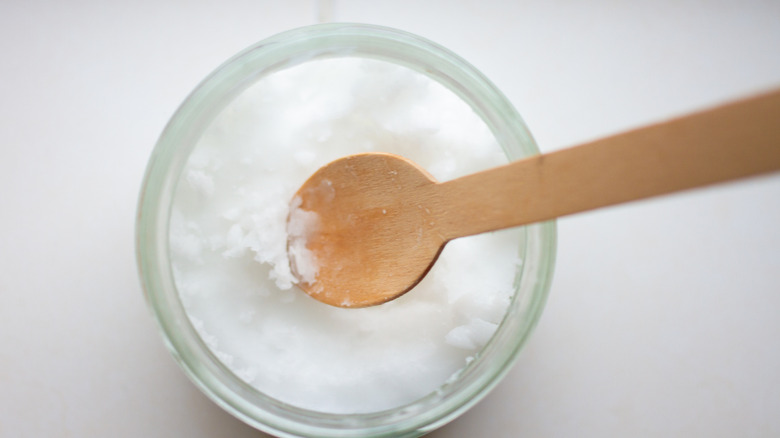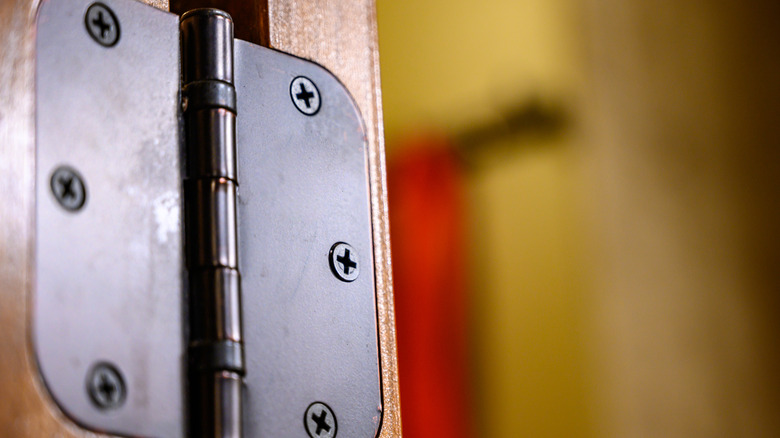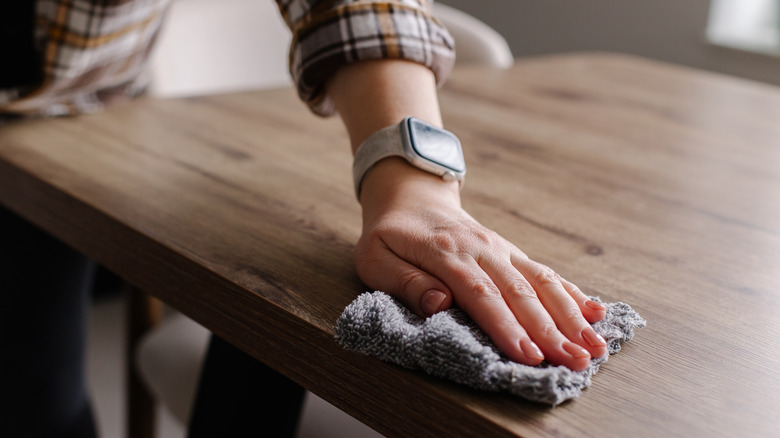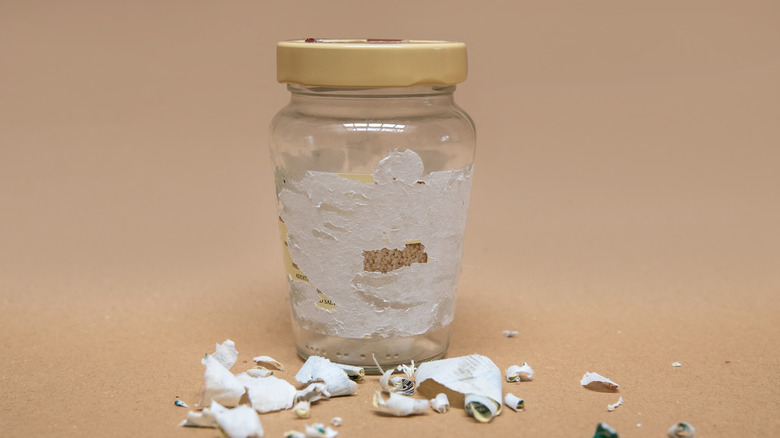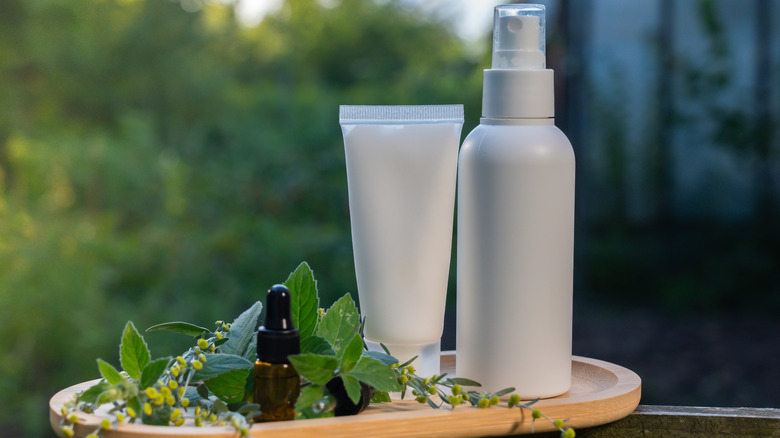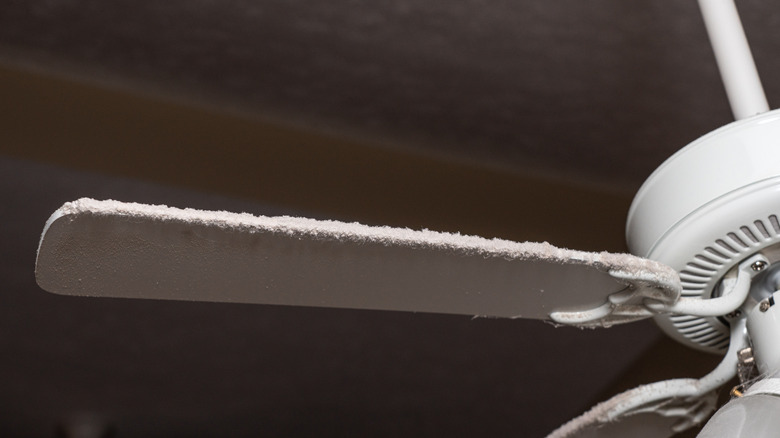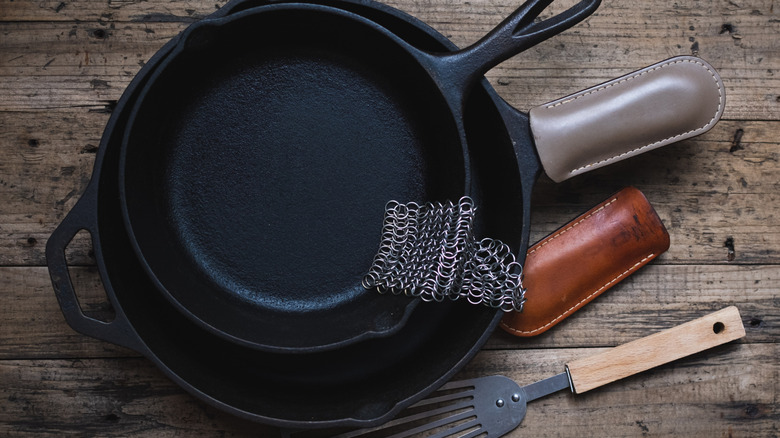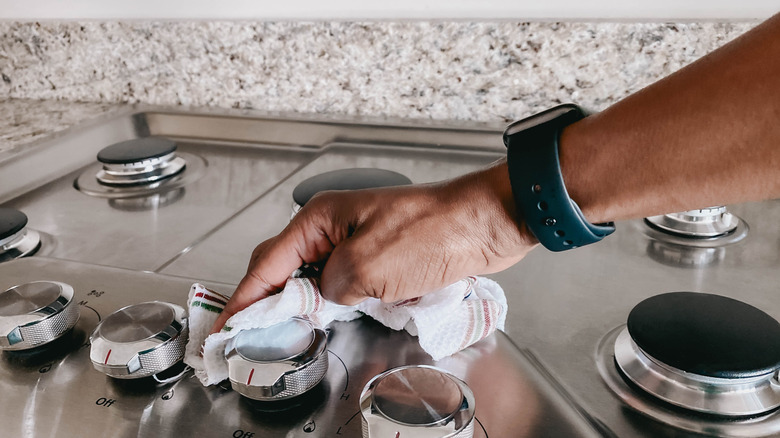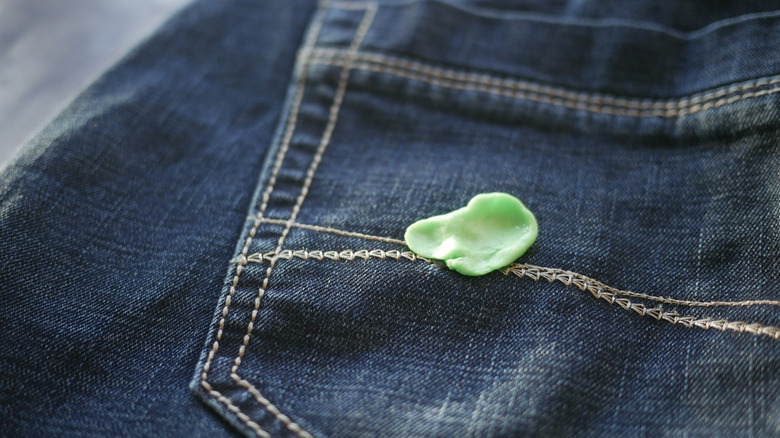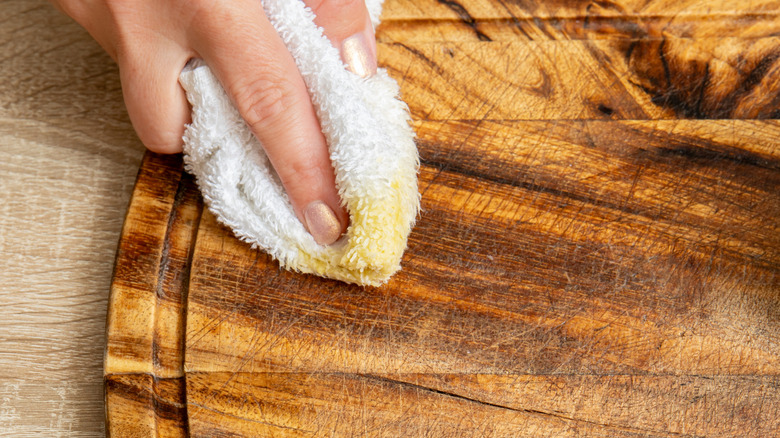Don't Throw Out Coconut Oil Without Trying These 14 Hacks Around The House
There are many kitchen staples that are easy to run out of: eggs, butter, milk, and vanilla extract all come to mind; then, there are the kitchen staples that you can never seem to get rid of — chief among these is coconut oil. Yes, that jar, bottle, or plastic jug of cloudy white oil seems to always be sitting around, and in many homes, it is never pulling its weight in the culinary department. If you're seeking ways to make better use of your coconut oil rather than throwing it out, the good news is that there are many ways to give this underutilized oil a job in your home.
Made by extracting oil from the pulp of coconuts, coconut oil has, in recent history, been touted as a healthier alternative to some vegetable oils. The fact stands, however, that if you haven't jumped on the cooking-with-coconut-oil train, there may be a jar of the stuff cluttering your pantry. Never fear — you can use this versatile oil to keep things running smoothly in your home by lubricating squeaky hinges, cleaning rust off of old tools, or polishing your wooden furniture. There are also many more applications for it, like removing numerous types of stains and keeping dust at bay.
Lubricate hinges
Few noises are more irksome than a squeaking hinge. If you're tired of that shrill sound, you can easily employ coconut oil to smooth things over — literally. Apply a small amount of coconut oil to a cloth, then rub it onto the moving parts of the hinge. Open and close the door several times to guarantee that it has had a chance to work its way into all of the nooks and crannies, then wipe away any excess oil. This trick is both effective and highly affordable, plus there will be no nasty odors from commercial lubricating sprays.
De-clutter your bathroom
If you try to avoid buying a new product for every beauty woe, why not try using coconut oil for your self-care? Bringing coconut oil into your bathroom can be an easy tip to help keep your bathroom clutter-free by eliminating niche products like hair masks, moisturizers, and makeup removers. Instead, use coconut oil for all of the above, saying goodbye to cluttered cabinets and countertops and hello to a simplified inventory. The only caveat for this use is to use it sparingly on your face if your skin is prone to clogged pores.
Polish wood
Looking for the coconut oil hack that will leave your furniture shining? It's true, coconut oil serves as an ideal wood finish and furniture polish since it can work its way into the wood, thus nourishing and protecting the material. First, dust the furniture to remove any debris, then arm yourself with a rag or cloth that you don't mind getting messy. Taking a small amount of coconut oil, work it into the grain of the wood, being careful to remove any excess oil. Repeat this process whenever your furniture is lacking in luster.
Get crayons off the wall
Kids move fast, and sometimes that means a scribbled-on wall while you were on the phone. Rather than falling into the mistakes everyone makes when cleaning painted walls, you can simply reach for the trusty jar of coconut oil, which seemingly miraculously lifts crayon stains. Simply get a little coconut oil onto a soft cloth, then rub gently to remove the marks. Remember to wipe away any excess coconut oil from the wall when you're done.
Get rust off of your tools
A rusty tool is truly horrifying to behold: the visible corrosion of your precious metal tools can spell disaster to the item's integrity if you wait too long to act. Fortunately, coconut oil is the secret weapon against rust on your metal tools. Not only can it remove rust from metal, but it can also prevent it from taking hold again in the future. Just spread a light layer of the oil on the rusted portion of your tool, then leave it to loosen the rust before scrubbing and wiping it clean.
Remove sticky residue from containers
Coconut oil makes for an exceptionally good degreaser and gunk remover. Pair it with a small amount of baking soda, then rub the paste onto the sticky area and leave for about 15 minutes. You're sure to be amazed by how quickly the leftover label adhesive is lifted. Then just wash off the paste and label — voila! You now have a sparkling new (to you) jar to add to your pantry.
Make your own bug repellent
If you're tired of getting eaten up when trying to enjoy time in your garden or on your patio, put your excess coconut oil to use by making your own mosquito repellent. In order to do so, you'll need a container, as well as ¼ cup of coconut oil, and an essential oil, such as rosemary or citronella (or any common essential oil people use to repel mosquitoes). Warm the coconut oil to liquid before mixing in the essential oils, then allow it to fully cool before applying it to your skin.
Keep dust at bay
Dusting is the bane of many homeowners' existences, and dusting ceiling fan blades can be all the more dismal since you have to haul out your step ladder to accomplish the task. If you'd like to lengthen the time between dustings, coconut oil could help you do just that. After you have dusted the fan blades, try applying a thin coat of coconut oil to the surfaces, which will make it more difficult for dust to stick to them in the future.
Season your favorite cast iron skillet
A cast iron skillet is a true asset in your kitchen arsenal, but if you haven't been staying on top of properly cleaning and seasoning it, you could be in for a world of trouble. Fortunately, coconut oil can come to your aid. It's easy to season your skillet with coconut oil; all you need is a small amount rubbed onto the skillet, then properly heat your skillet to help it absorb the oil.
Make your stainless appliance shine
If you're tired of grimy fingerprints negatively impacting the aesthetic of stainless steel appliances, coconut oil could just be your new best friend. You might be surprised by the suggestion to use an oil to reveal a shining surface, but it really does work. It's very important to first remove any crumbs or debris that have accumulated on the surfaces of your appliance before using the oil to polish it in the direction of the grain. If you have to clean the surface with water or cleaner first, thoroughly dry it before going in with the oil.
Get rid of stuck-on gum
If laundry is among the domestic duties you're responsible for, perhaps you've had the bad luck of discovering a wad of gum essentially baked into a pair of jeans. Rather than mourning the loss of your favorite pants, coconut oil may just be the best way to get gum out of your clothes. Begin by warming the oil until it is in its liquid state, then saturate the gum in the oil. It should detach easily from the fabric, and then you can rewash the article of clothing to remove any oil residue.
Season your wooden cutting board
Similar to how coconut oil can help you polish your dining room table, you can also use it to nourish your trusty cutting board. In order to get the best results, it's advised to use fractionated coconut oil, which has been processed slightly differently, rendering it liquid at room temperature.
Get a stain out of fabric
You probably never thought you'd be told to use oil on a stain, but that's because no one told you about coconut oil going head-to-head against food stains. If a piece of clothing has suffered some food stain, make a paste of baking soda and coconut oil; the combo has powerful properties for lifting stains from fabrics. Apply the paste to the spot, then leave for 15 minutes or so. Rinse, wash, and be amazed. One important caveat is to avoid using coconut oil on silk, as it can leave a stain of its own.
Clean hard-water-stained shower doors
Last but not least, coconut oil can help you in your continuing war against hard water stains. Mix up some liquified coconut oil and lemon juice, then apply it to the affected glass. Using a clean towel, you'll need to polish or buff the glass to remove most of the oil, then follow it up with a mixture of water and vinegar, which will reveal crystalline clear glass where mineral-pocked glass once stood.
